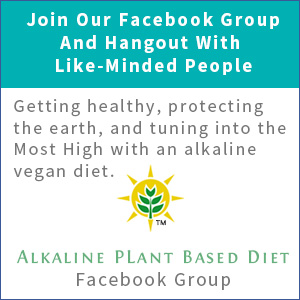What Is Inflammation? Inflammation Causes Disease
What is Inflammation? Should We Reduce Inflammation?

What is inflammation? I remember having a discussion about “inflammation causes disease,” and the person thought the idea was baloney. She told me that inflammation is natural part of our immune system.
She stated that this “inflammation causes disease” notion was just some new wholistic health fad and that inflammation wasn’t bad and was good thing. She was correct that “inflammation” can be good thing. The issue was the way we conceptualized inflammation, and this is what we needed to examine.
When there is concern that we need to reduce inflammation, the concern is about reducing chronic inflammation and not acute inflammation. Referring to inflammation as either acute inflammation or chronic inflammation helped to clear things up.
Acute Inflammation is a very good thing and is a process that heals the body against injury and disease. It is chronic inflammation that is harmful and is caused by a disruption in the natural and protective acute inflammation process. The issue is that the term inflammation is being used to describe both conditions which confuses the issue.
Acute Inflammation
Why does inflammation occur? Acute inflammation is a process where the body increases blood flow to capillaries in an area of the body that has been injured or infected. The process includes dilation of the blood vessels, which allows blood to flow through less restricted.
The capillaries also become more permeable allowing fluids, proteins, and white blood cells (neutrophils, eosinophils, and or macrophages), and pro-inflammatory cells to escape the capillaries and to enter the affected area. This action localizes the infected or injured tissue causing inflammation or swelling in the area to maximize the healing process. Under normal circumstances the acute inflammation is turned off after the infected or injured area has been healed.
Chronic Inflammation
Chronic inflammation happens when acute inflammation is not completely turned off and this is when there is concern that we need to reduce inflammation. Under this condition pro-inflammatory cells are slowly and continuously released into the body and act like a slow-burning fire, slowly destroying the cells they come in contact with. This continuous release of inflammatory cells can lead to diseases like cancer, diabetes, Alzheimer’s, heart disease, and arthritis.
We are able to reduce inflammation in the body by removing foods that cause inflammation, and by adding foods that reduce inflammation to our diets.
Foods That Cause Inflammation
(For a more complete explanation of why these foods cause inflammation see: Foods That Cause Inflammation)
These foods have an inflammatory effect in the body:
- Foods Containing Processed And Added Sugars:
- Candy
- Cakes
- Sweetened Food
- Vegetable Oils High In Omega-6 Fatty Acids:
- Corn Oil
- Cottonseed Oil
- Grapeseed Oil
- Safflower Oil
- Soybean Oil
- Sunflower Oil
- Vegetable Oil
- Trans Fats: Trans fats are used in processed:
- Cereals
- Cakes
- Muffins
- Cookies
- Fat Food
- Frozen Dinner Food
- Margarine
- Candy
- Alcohol
- Meat:
- Beef
- Pork
- Chicken
- Eggs
- Dairy
- Artificial Food Additives And Preservatives
- MSG
- Aspartame
- Saccharine
-
Gluten Grains:
- Wheat
- Barley
- Rye
-
Refined Grains:
- White Bread
Foods That Reduce Inflammation
- Anti-oxidant rich fruits: blueberries, cantaloupe, cherries, raspberries, papaya, strawberries, plums and watermelon
- Anti-oxidant rich vegetables: bell peppers, broccoli, cauliflower, kale, spinach, squash, and turnip greens.
- Broccoli – anti-inflammatory – kaempferol flavanoid
- Cacao – flavanols reduce inflammation
- Chia seed – anti-inflammatory – omega-3
- Flax seed – anti-inflammatory – omega-3
- Ginger – anti-inflammatory properties
- Olive oil – anti-inflammatory -oleocanthal
- Turmeric – anti-inflammatory properties – curcumin
- Walnuts – anti-inflammatory – omega-3
Eat more of these foods that reduce inflammation and are part of a plant based diet to support healthy living.
Tags: califlower, fight inflammation, inflammation, inflammation causes disease, what is inflammation







